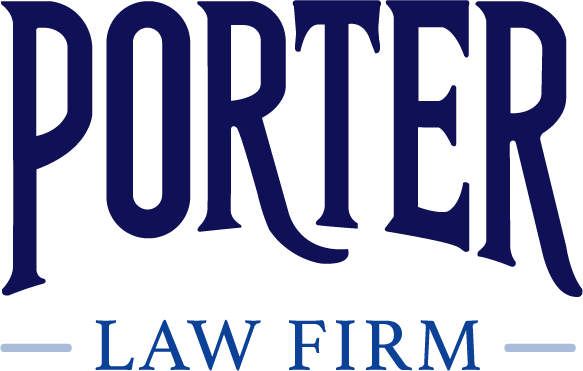Are you a member of a Homeowner Association? Are you a single-member LLC? Are you a small business owner with an LLC? Do you own real estate through an LLC? If so, the Corporate Transparency Act of 2024 might significantly impact you. Enacted as part of the National Defense Authorization Act for Fiscal Year 2021, the CTA mandates the disclosure of beneficial ownership information (BOI) to the U.S. Treasury Department’s Financial Crimes Enforcement Network (FinCEN) to curb illicit activities such as money laundering, tax evasion and the financing of terrorism.1 This article explores the CTA’s background, key provisions, and implications for legal practice and compliance.
Early Efforts Toward Corporate Transparency
Efforts to enhance corporate transparency in the United States date back to the early 2000s, spurred by high-profile corporate scandals like Enron and World-Com. The Sarbanes-Oxley Act of 2002 was a significant legislative response, imposing rigorous financial reporting requirements on publicly traded companies to prevent corporate fraud. However, Sarbanes-Oxley primarily targeted public companies, leaving a regulatory gap concerning privately held entities, which often operated with minimal disclosure requirements.2
The lack of transparency in private corporate ownership structures became a significant concern for law enforcement and policymakers. Anonymous shell companies were frequently used to hide assets and facilitate financial crimes, prompting calls for more stringent regulations.3
International Pressure and High-Profile Leaks
International pressure played a critical role in shaping U.S. corporate transparency policies. The Financial Action Task Force (FATF), an intergovernmental body established to combat money laundering and terrorist financing, consistently identified the U.S. as a jurisdiction with insufficient measures for identifying beneficial ownership.4 FATF’s reports, and mutual evaluations underscored the importance of transparency in combating financial crimes and urged the U.S. to adopt more robust frameworks.5 The 2016 Panama Papers leak further highlighted the pervasive use of anonymous shell companies to conceal wealth and evade taxes, intensifying global demands for greater corporate transparency.6 These revelations underscored the necessity of a legislative response to address the shortcomings in U.S. corporate governance.
Legislative Developments Leading to the Corporate Transparency Act
The path to the Corporate Transparency Act was marked by several legislative attempts and proposals. Notably, the Incorporation Transparency and Law Enforcement Assistance Act, first introduced in 2008, sought to require the disclosure of beneficial ownership information for newly formed corporations and limited liability companies (LLCs). Despite bipartisan support, the bill faced significant opposition from business groups concerned about privacy and regulatory burdens, stalling its progress.7
Subsequent iterations of similar bills reflected a persistent yet contentious push for transparency. Advocates argued that beneficial ownership disclosure was crucial for law enforcement to track and prevent financial crimes, while opponents raised concerns about the impact on legitimate business privacy and increased compliance costs.8
The breakthrough came with the inclusion of the Corporate Transparency Act in the National Defense Authorization Act for Fiscal Year 2021.9 This strategic move ensured the CTA’s passage, recognizing corporate transparency as essential for national security and financial integrity.10
The Corporate Transparency Act of 2024
As of January 1, 2024, the Corporate Transparency Act (CTA) of 2024 came into effect in the United States, in effort to combat corporate financial crimes and enhance transparency. This law imposes new reporting requirements on certain entities formed or registered to do business in the U.S., aiming to disclose beneficial ownership information to FinCEN.11 The CTA mandates that “reporting companies,” which include corporations, limited liability companies (LLCs) and similar entities, disclose information about their beneficial owners to FinCEN. Beneficial owners are individuals who directly or indirectly control the entity or own at least 25% of the entity.12
Reporting Obligations and Requirements
As of January 1, 2024, the CTA requires the following information to be reported about beneficial owners: (i) full legal name, (ii) date of birth, (iii) current residential address and (iv) unique identifying number from an acceptable identification document (e.g., passport, driver’s license) or a FinCEN identifier.13
The most looming part of the CTA is the filing deadlines. Different companies have differed deadlines based on their registration dates. The filing deadlines are as follows: (i) companies formed or registered before January 1, 2024 have until January 1, 2025 to file their beneficial ownership information, (ii) companies formed or registered in 2024 must file within 90 calendar days after receiving notice that their creation or registration is effective and (iii) companies formed or registered on or after January 1, 2025 must file within 30 calendar days after receiving such notice.14 Any updates or corrections to beneficial ownership information must be submitted to FinCEN within 30 days of the change.15 While the reported informa-
tion will not be publicly available, FinCEN has the authority to share it with U.S. federal law enforcement agencies under certain conditions and with other entities upon consent of the reporting company.16 Non-compliance with the CTA can lead to significant penalties, including fines and potential criminal charges. Therefore, it is crucial for affected entities to understand their obligations and ensure timely and accurate reporting to FinCEN.
Examples of Entities Required to File BOI Reports with FinCEN
The CTA mandates various entities disclose their BOI to FinCEN. The requirements apply to a broad range of organizations, including small business owners, homeowner associations and limited liability company (LLC) owners. Understanding which entities must comply is critical for legal practitioners advising clients on their compliance obligations.
1. Small Business Owners
Small business owners operating as corporations or LLCs are among those required to file BOI reports under the CTA. These entities often have fewer shareholders or members, making the identification of beneficial owners more straightforward. For instance, a local bakery structured as an LLC with two owners, each holding a 50% stake, must report both owners to FinCEN.
2. Homeowner Associations (HOAs) Homeowner associations,
typically structured as non-profit corporations, may also be subject to BOI reporting requirements if they engage in financial transactions or hold significant assets. An HOA managing a large residential community with substantial financial reserves and property holdings must report its beneficial owners. These owners might include members of the board of directors or other individuals with significant control over the association’s finances and operations. The same reporting criteria apply, ensuring transparency in the ownership and control of entities that manage substantial community assets.17
3. Limited Liability Company (LLC) Owners
LLCs are specifically highlighted in the CTA as entities that must comply with BOI reporting. Owners of LLCs, whether they are single-member or multi-member, must disclose their beneficial ownership information. For example, a consulting firm organized as an LLC with three partners, each owning an equal share, must report all three partners to FinCEN. This requirement extends to LLCs involved in diverse sectors, including real estate, professional services and technology, ensuring a comprehensive approach to transparency and accountability.18
Who Gets a Pass?
The Corporate Transparency Act casts a wide net over varies types of entities. However, it also acknowledges the diversity of businesses and organizations. Therefore, certain categories are exempt from reporting obligations. The Act carves out exemptions for: securities reporting issuers, governmental authorities, banks, credit unions, depository institution holding companies, money services businesses, brokers or dealers in securities, securities exchanges or
clearing agencies, other Exchange Act registered entities, investment companies or investment advisers, venture capital fund advisers, insurance companies, state-licensed insurance producers, commodity Exchange Act registered entities, accounting firms, public utilities, financial market utilities, pooled investment vehicles, tax-exempt entities, entity assisting a tax-exempt entities, large operating companies, subsidiaries of certain exempt entities and inactive entities.19
As businesses adapt to the evolving regulatory landscape, staying informed about the exemptions is crucial. While exemptions alleviate reporting burdens for certain entities, compliance with other obligations remains paramount. Proactive engagement can help entities navigate these complexities effectively, ensuring alignment with the law.
Impact of Non-Compliance
The CTA imposes significant responsibilities on reporting companies. Failure to comply with the CTA’s reporting requirements can lead to severe consequences. Civil penalties are particularly daunting, with fines accruing at $500 per day for each day of non-compliance.20 For entities that fail to report or update their beneficial ownership information, these penalties can escalate rapidly. Additionally, criminal penalties are also in place for more significant violations. Individuals that fail to comply may face imprisonment for up to two years along with hefty fines.21
However, the CTA does provide a safe harbor provision, which gives protection against penalties under specific conditions. If incorrect information is submitted but corrected within 90 days of the original report and there was no intent to evade requirements or knowledge of inaccuracies, entities may avoid severe penalties.22
Protecting Yourself and Your
Given the stringent penalties associated with the CTA, it is crucial for entities to take proactive measures to ensure compliance and protect themselves from potential liabilities. First and foremost, understanding and adhering to the reporting deadlines based on the entities registration or formation date will start the entity off on the right foot. However, that information is useless if not accurate. Therefore it is important to ensure that the beneficial ownership information submitted to FinCEN is accurate and up to date.
Moreover, one key element of compliance is the use of a FinCEN Identifier. A FinCEN Identifier is a unique alphanumeric code assigned by FinCEN to facilitate the reporting of beneficial ownership information.23 It serves as an alternative to providing personal identification documents, like a passport or driver’s license.24 The use of a FinCEN Identifier helps streamline the process by providing a standardized method of identifying beneficial owners while also protecting their personal information from theft or misuse. In cases where updates or corrections to beneficial ownership information are necessary, using a FinCEN identifier ensures that changes can be accurately reflected in subsequent reports. To obtain a FinCEN Identifier, reporting companies may register and create an account on the FinCEN website.25 The process is quick and typically requires verifying the entity’s identity and providing necessary documentation for the application. However, once completed, the FinCEN Identifier can be used in place of personal identification numbers when reporting beneficial ownership information, removing the stringent requirement of updating personal addresses and information.
Emergence of Specialized BOI Filing Companies
In the wake of the Corporate Transparency Act of 2024, businesses and entities affected by its reporting requirements are seeking efficient ways to comply with new regulations without compromising on operational efficiency. While the FinCEN website provides a centralized platform for submitting beneficial ownership information, alternative services are emerging to streamline and simplify this process.
Specialized BOI filing companies provide a range of services designed to simplify the compliance process for businesses. Key services include BOI report preparation and filing, compliance monitoring and updates, and consultation and guidance. These companies assist clients in gathering the necessary information and accurately preparing BOI reports. They ensure that the reports include all required details such as the full legal names, dates of birth, current residential addresses and unique identifying numbers of beneficial owners. Because ongoing compliance is crucial under the CTA, specialized BOI filing companies offer monitoring services to track changes in beneficial ownership and ensure timely updates to FinCEN. They also remind clients of approaching filing deadlines and handle any required amendments or corrections.
While not providing legal or accounting advice, these companies offer consultation services to help businesses understand their reporting obligations. They explain the CTA requirement and guide clients through the compliance process, helping to avoid common pitfalls. One notable alternative to direct FinCEN reporting is FinCENSimplified.com. This platform offers a user-friendly interface designed to guide entities through the reporting process step-by-step. From inputting essential company information to identifying and disclosing beneficial owners, FinCENSimplified.com aims to simplify compliance efforts. Additionally, it provides resources and FAQs to help users navigate regulatory requirements with confidence.
Another valuable resource is FinCENReport.com, which offers comprehensive compliance solutions tailored to the Corporate Transparency Act. This platform not only facilitates reporting but also provides expert guidance on regulatory nuances and updates. Through webinars, tutorials and personalized support, FinCENReport.com assists businesses in understanding their obligations and ensures accurate and timely submission of beneficial ownership information to FinCEN. When considering alternatives to FinCEN’s official reporting channels, businesses should evaluate platforms like FinCENReport.com and FinCENSimplified.com based on their specific needs. Factors such as user interface intuitiveness, customer support availability and additional compliance resources can significantly influence the decision-making process. Ultimately, leveraging these alternatives can enhance efficiency, reduce compliance burdens and foster smoother integration of regulatory requirements into everyday operations.
Conclusion
requirements, understanding the implications and taking proactive steps towards compliance are essential. Integrating a FinCEN Identifier into their reporting activity can reduce the risk of noncompliance. Legal practitioners must guide their clients through the complexities of the CTA, ensuring that they fulfill their obligations accurately and on time.
Endnotes
Pub. L. No. 116-283, §§ 6401-6403 (2021).
Financial Crimes Enforcement Network [hereinafter FinCEN], Beneficial Ownership Information Reporting Requirements, 86 Fed. Reg. 88324 (Dec. 30, 2021).
Financial Action Task Force [hereinafter FATF], Guidance on Transparency and Beneficial Ownership (Oct. 2014), www.fatf-gafi.org/ content/dam/fatf-gafi/guidance/Guidance-transparency-beneficial-ownership. pdf.coredownload.inline.pdf.
International Consortium of Investigative Journalists, The Panama Papers: Exposing the Rogue Offshore Finance Industry (2016).
Id.
FinCEN, Corporate Transparency Act Implementation (Jan. 2024).
U.S. Department of the Treasury, FinCEN Identifier (Dec. 2023).
FinCEN, supra note ii.
FinCEN, supra note vi.
Id.
31 U.S.C. § 5336(a)(11)(A).
Id.
31 U.S.C. § 5336(b)(2)(A).
31 U.S.C. § 5336(b)(1)(A) – (E).
Id.
FinCEN, Corporate Transparency Act: Reporting Requirements, www.fincen.gov/news/ news releases/corporate-transparency-act-reporting-requirements (last visited July 8, 2024).
FATF, supra note iii.
International Consortium of Investigative Journalists, supra note iv.
3831 U.S.C. § 5336(a)(11)(B).
31 U.S.C. § 5336(h)(3)(A).
Id.
31 U.S.C. § 5336(h)(3)(C).
FinCEN, supra note ix.
Id.
Id.




